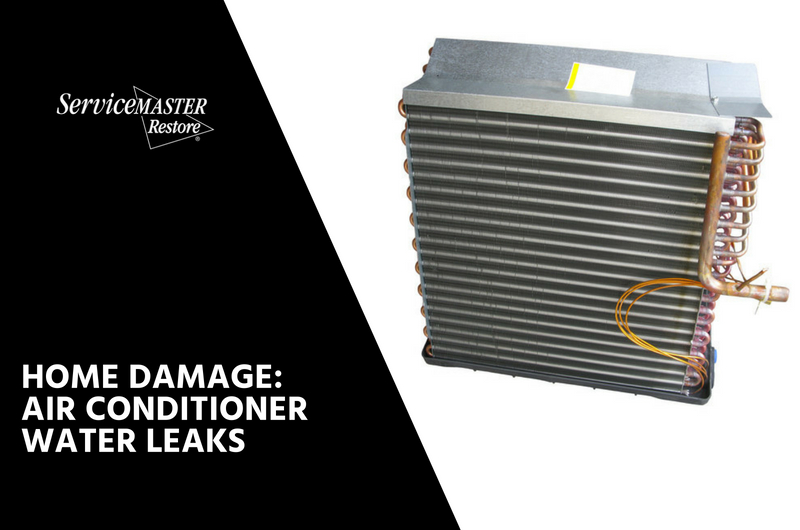When the weather turns hot and humid for days and weeks, even a Michigan summer can become uncomfortable. Central air conditioning makes life more bearable, except when you discover that the air conditioning unit has been leaking. Water leaks from an air conditioner may happen slowly over time, causing damage to floors, walls, insulation and wiring.
What Causes a Water Leak?
A central air conditioner cools your home by removing moisture (water vapor) from the air. An evaporator coil cools the warm air blown over it, causing condensation on the coil, which is supposed to drip into a drain pan or drain line, which sends the water outside of your home.
There are some common reasons why water can leak indoors due to an air conditioner malfunction. These include:
- A clog in the condensate drain line
- The drain line became disconnected somehow
- The condensate pump malfunctioned
- The drain pan became clogged, cracked, or rusted through
- Evaporator coils froze due to low refrigerant or a refrigerant leak
- The coils became dirty or damaged
Can Just a Small Leak Damage Your Home?
First, determine how to fix the A/C unit properly to prevent future leakage. Hire a professional HVAC specialist who is familiar with the brand and specifications required for replacement of parts, maintenance, proper refrigerant, etc. Be sure the parts are replaced properly and find out what type of warranty is included with their service.
Next, find out how extensive the water damage is, and where it is located. Most often, the dripping water would flow to a path of least resistance. This might lead you to a water trail across the floor and under the wall, possibly into adjoining rooms.
Flooring may have become saturated, then partially dried out a bit, then repeated, so that the flooring material and sub-floor beneath contains a constant level of moisture. This presents an opportunity for mold to form, which can rapidly spread through the flooring and other porous material.
Water dripping underneath the wall studs will saturate the drywall as well as any insulation within the wall. Again, since these are porous materials, they will continue drawing water further up the wall. Sometimes, A/C units are installed within a closed closet area, so check all the adjoining walls to be sure there is no additional moisture.
A telltale sign of trouble is a musty smell around the A/C unit. This is one of the first indications of mold and mildew forming. Mold spores can become airborne and spread to other areas of the house, even through the ductwork of the air conditioning system.
A qualified water damage specialist can inspect the area to determine the extent of water absorption in the walls, and whether a mold problem has developed.
Is A/C Replacement Covered Under Insurance?
It’s always best to review your individual policy, as state requirements and levels of coverage can differ. In most cases, malfunction or maintenance neglect will not justify replacement coverage under a normal insurance policy.
Regular maintenance of the air conditioner includes some of the following:
Check the condensation line to be sure water is flowing; and clean the line every 2-3 months. Change the filter every 2-3 months so it doesn’t become clogged and cause an ice buildup. Check the drain pan or consider installing an overflow pan or second drain line. A plumber or HVAC expert can help with this, as well as checking the refrigerant level.
If you notice an indoor water leak from the air conditioning system, get help fast before it becomes a larger problem. Get the unit serviced by a qualified specialist and call ServiceMaster by the Border to help minimize the water damage and prevent mold inside your home.


